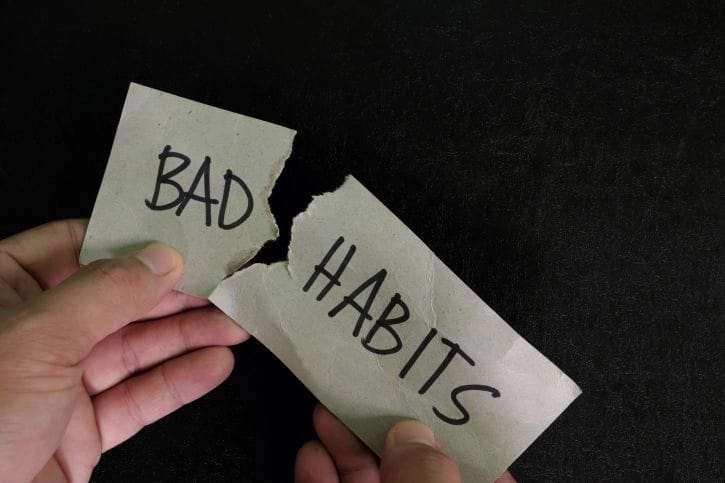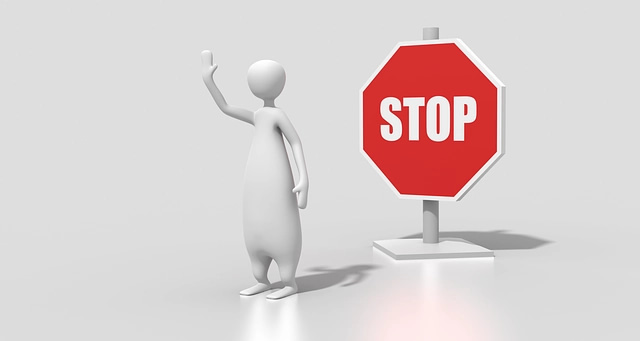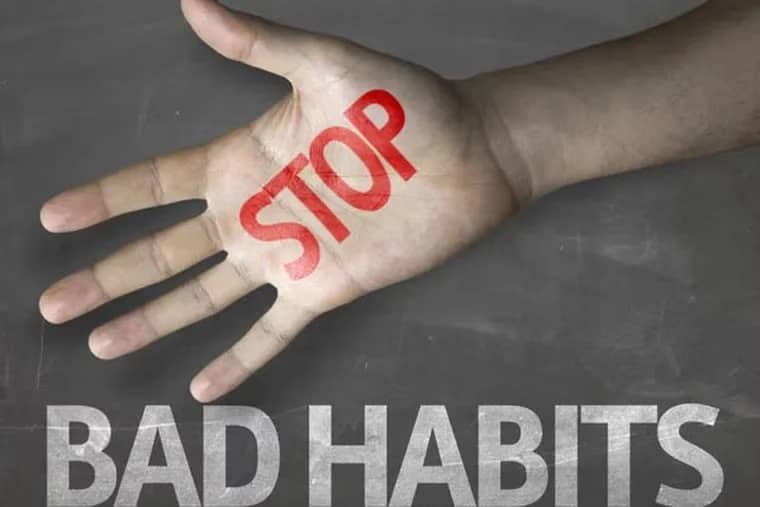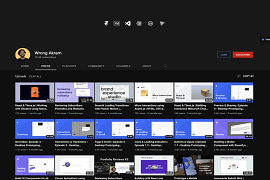Let’s go on a long ride on this topic: 10 Strategies on How to Break Out From Bad Habits. Living and truly enjoying your life depends on your input to make it a better one.
Everyone has a few bad habits they just can’t break. And while a lot of these aren’t necessarily that terrible (a few “bad” things can be fun, right?), it’s healthy to try to break at least a few of them to live a more fulfilling life.
We all have habits, and there’s nothing inherently wrong with them. Some are pretty useful maybe you lay out your clothes for work the night before or automatically turn off the lights when you leave a room.
Breaking habits is hard. We all know this, whether we’ve failed our latest diet (again), or felt the pull to refresh our Instagram feed instead of making progress on a work project that is past due.
This is large because we are constantly barraged by stimuli engineered to make us crave and consume, stimuli that hijack the reward-based learning system in our brains designed initially for survival.
Let’s try something. Put simply, reward-based learning involves a trigger (for example, the feeling of hunger), followed by a behavior (eating food), and a reward (feeling sated). We want to do more of the things that feel good and less of the things that feel bad or stressful.
This is especially true at work. Each time we try to soothe ourselves from a taxing assignment we reinforce the reward, to the point where unhealthy distractions can become habits.
But other habits, such as biting your nails, drinking caffeine too late in the day, or hitting snooze too many times, might not be so beneficial.
Breaking unwanted habits can be difficult, especially if you’ve been engaging in them for a long time. Whether you constantly check your email outside of work hours or hit the snooze button way too many times every morning, nobody is perfect. The good news is that a few small changes can go a long way.
Keep reading to find out the bad habits you can stop doing right now that will make you feel a lot better.
How to Break a Bad Habit (and Replace It With a Good One)
https://jamesclear.com/how-to-break-a-bad-habit
While my research has been focused primarily on changing health-related habits, I believe it is highly relevant to the workplace. These very strategies can help workers up their productivity, morale, and overall performance by teaching them how to overcome the habits that may be holding them back from thriving.
10 Strategies on How to Break Out From Bad Habits
What causes bad habits?

Most of your bad habits are caused by two things according to James Clear.
- Stress and
- Boredom.
Most of the time, bad habits are simply a way of dealing with stress and boredom. Everything from biting your nails to overspending on a shopping spree to drinking every weekend to wasting time on the internet can be a simple response to stress and boredom.
Of course, sometimes the stress or boredom that is on the surface is actually caused by deeper issues. These issues can be tough to think about, but if you’re serious about making changes then you have to be honest with yourself.
How to know You Are An Extrovert According to Psychology https://preciousifeoma.com/how-to-know-you-are-an-extrovert-according-to-psychology/
Sometimes the benefit is biological like it is with smoking or drugs. Sometimes it’s emotional like it is when you stay in a relationship that is bad for you. And in many cases, your bad habit is a simple way to cope with stress. For example, biting your nails, pulling your hair, tapping your foot, or clenching your jaw. These “benefits” or reasons extend to smaller bad habits as well.
Recommended
https://health.clevelandclinic.org/how-to-break-bad-habits/amp/
TOP TEN STRATEGIES TO BREAK OUT FROM YOUR BAD HABITS
In other words, bad habits address certain needs in your life. And for that reason, it’s better to replace your bad habits with healthier behavior that addresses that same need.
If you expect yourself to simply cut out bad habits without replacing them, then you’ll have certain needs that will be unmet and it’s going to be hard to stick to a routine of “just don’t do it” for very long.
1. Being Late
It’s totally not worth it. Certain people tend to be late on every occasion. This tendency can have dreadful effects on your life. The very first thing is it can make you a compulsory procrastinator.
2. Always Telling Lies
It will come off as though you ain’t lying but you are if you change the scenarios and to the part that favors you.
3. Being with People Who Don’t Appreciate You.
The best thing to counter this bad habit is by making friends with people who appreciate you for who you are. Look out for people who provide sincere compliments and help you become a better person.
The human mind is such that it longs for people who appreciate you. If you are in the company of people who do not appreciate you, it can worsen your life.
4. Focusing On The Negatives.
I know sometimes our minds can be tricky. Don’t stop to think about it but focus on the concept that it can be better. People who have the habit of concentrating only on the negative end up facing only negative circumstances in their life. This is a never-ending circle of bad habits. The more you try to end this bad habit, the more you get drenched in it.
5. Relationship
Certain people want to be in a relationship to cling to someone. This is a very bad thing. If you are in a bad relationship and do not want to end it, it will consume every inch of your body.
Here’s How To Get Started.

1. Find out the Issue.
We need to figure out your triggers. If the habit is procrastination or stress eating at work, for example, pay attention to the circumstances surrounding you when you do those things.
Do you have a big project you’re trying to avoid? Do you have too much on your plate to manage?
Make it easier on yourself to break bad habits by avoiding the things that cause them.
Once you know your triggers, try to identify the behaviors you engage in when you are acting out. Do you check social media instead of doing work? Do you snack on sweets during challenging assignments? You must be able to name the actions you turn to for comfort or peace of mind before you can evaluate their reward values.
2. Get Motivated
To successfully break a habit, it’s important to identify why you want to change. Write down your reasons.
I was reading one Harvard Health Blog and I found out bad habits are slightly different, but when we try to break a bad one we create dissonance, and the brain doesn’t like that, says Dr. Luana Marques, associate professor of psychology at Harvard Medical School.
https://www.headspace.com/articles/break-bad-habits
The limbic system in the brain activates the fight-flight or freeze responses, and our reaction is to avoid this “threat” and go back to the old behavior, even though we know it’s not good for us.
What are the upsides of changing? What are the downsides of continuing the behavior? Keep this list with you in case you need to look at it for motivation.
But before you try to change a habit, it’s fundamental to identify why you want to change.
When the reason is more personal, you want to be around for your kids; you want to travel more; you have a stronger motivation and a reminder to refer back to during struggles.
3. Practice Mindfulness
It’s super exhilarating to find out that our mind is entirely ours. Mindfulness can help you develop an awareness of your thoughts, feelings, and actions.
Make it a conscious effort.
This practice involves simply observing impulses that relate to your habit without judging them or reacting to them.
As you become more aware of these routine behaviors and the triggers that lead to them, you may find it easier to consider other options, such as avoiding reminder cues or not acting on the urges.
4. Replace the habit with a different one.
It’s better to understand that our habits can always change or be replaced with a better ones. You might have an easier time breaking a habit if you replace the unwanted behavior with a new behavior, instead of simply trying to stop the unwanted behavior.
Say you want to stop reaching for sweets when you’re hungry at the office. You don’t eliminate a bad habit, you replace it. If you simply try to avoid the delicacies, you might fall back into the habit when you can’t resist hunger. But bringing in a Tupperware of dried fruit and nuts to keep at your desk gives you another snack option.
For example, opening your email inbox as soon as you turn on your computer might make you feel connected.
At the same time looking at all of those emails destroys your productivity, divides your attention, and overwhelms you with stress. But, it prevents you from feeling like you’re missing out so what next you do it again right?
Because bad habits provide some type of benefit in your life, it’s very difficult to simply eliminate them. Instead, you need to replace a bad habit with a new habit that provides a similar benefit.
For example, if you smoke when you get stressed, then it’s a bad plan to “just stop smoking” when that happens. Instead, you should come up with a different way to deal with stress and insert that new behavior instead of having a cigarette.
In other words, bad habits address certain needs in your life. And for that reason, it’s better to replace your bad habits with a healthier behavior that addresses that same need.
If you expect yourself to simply cut out bad habits without replacing them, then you’ll have certain needs that will be unmet and it’s going to be hard to stick to a routine of “just don’t do it” for very long.
As you repeat the new behavior, the impulse to follow the new routine develops. Eventually, after you see rewards from the new habit, more energy, and less of a sugar crash, the urge to keep doing this behavior might outweigh the desire to pursue the old habit.
5. Have an Accountable Partner
It could be a friend or friend, try as much as possible to join forces with somebody. How often do you try to diet in private? Or maybe you “quit smoking” but kept it to yourself? (That way no one will see you fail, right?)
Instead, pair up with someone and quit together. The two of you can hold each other accountable and celebrate your victories together. Knowing that someone else expects you to be better is a powerful motivator.
Surround yourself with people who live the way you want to live. According to Healthline, the making of a habit. There are a few theories about how habits develop. The idea of the 3 Rs is one of the main ones.
Check out:
https://www.healthline.com/health/how-to-break-a-habit
Reminder:

This is a trigger, or cue, that could be a conscious behavior, such as flushing the toilet, or a feeling, such as nervousness.
Routine:
This is the behavior associated with the trigger. Flushing the toilet causes you to wash your hands while feeling nervous triggers biting your nails. Doing something over and over can make the behavior routine.
Reward:
The reward associated with behavior also helps make a habit stick. If you do something that causes enjoyment or relieves distress, the pleasurable release of dopamine in your brain can make you want to do it again.
Conclusion
See yourself throwing away cigarettes buying healthy food or waking up early. I love thinking of doing things I’ve always wanted to do. Whatever the bad habit is that you are looking to break, visualize yourself crushing it, smiling, and enjoying your success. See yourself building a new identity.
Do this and say with all sincerity that you will.
“I’m fat and out of shape, but I could be in shape a few months from now.”
“I’m stupid and nobody respects me, but I’m working to develop a valuable skill.







